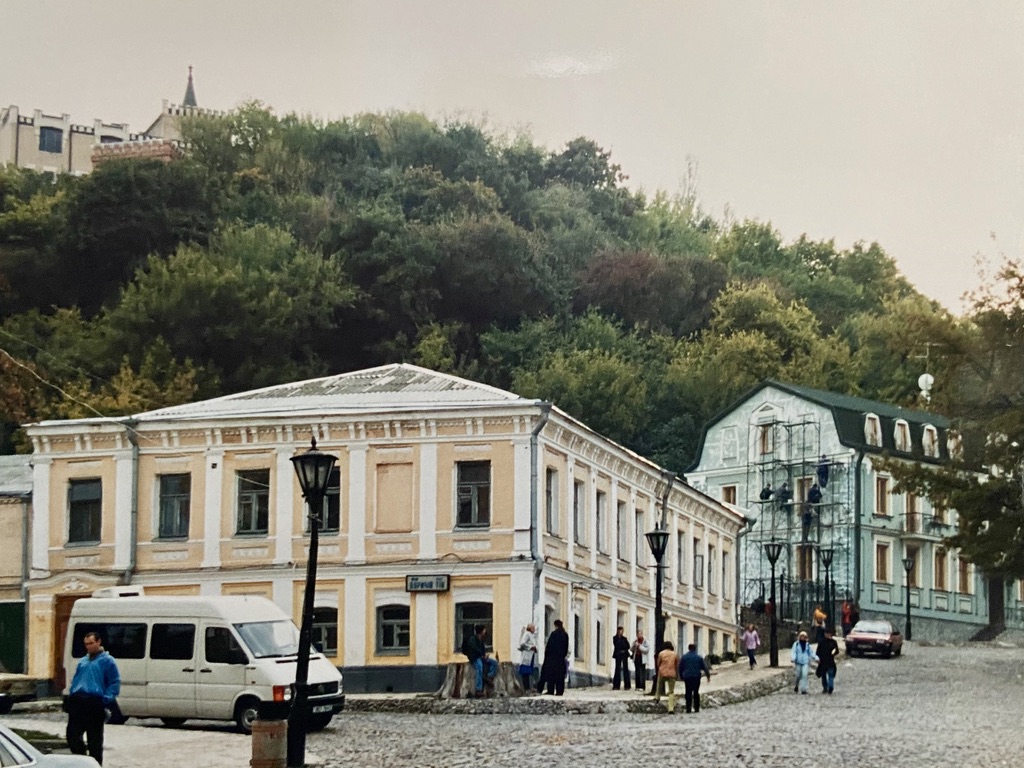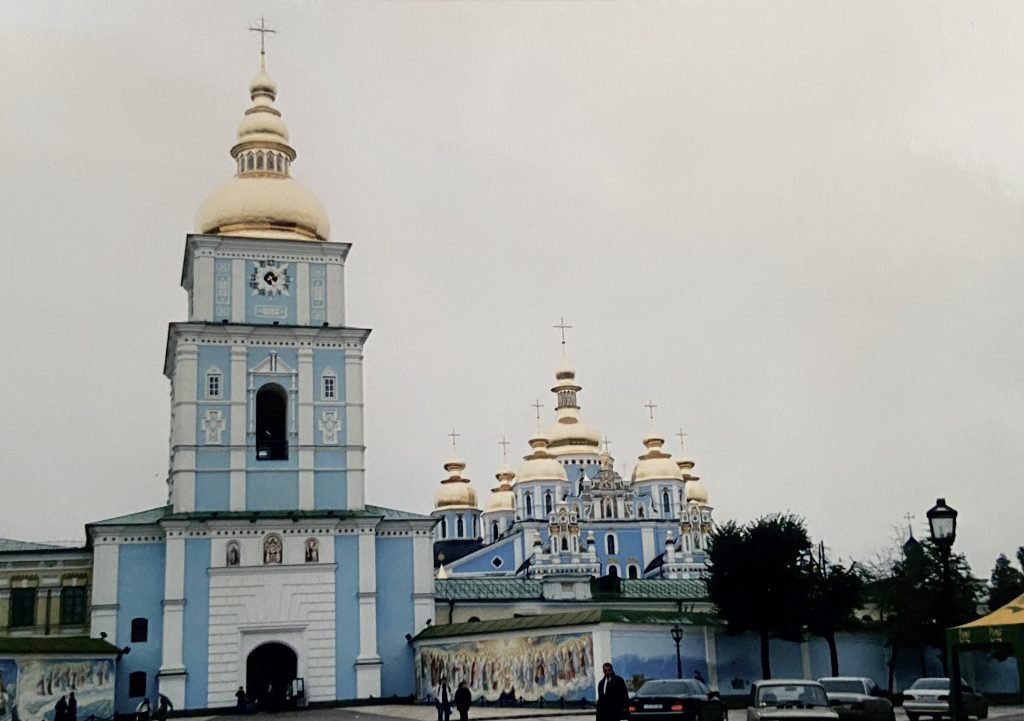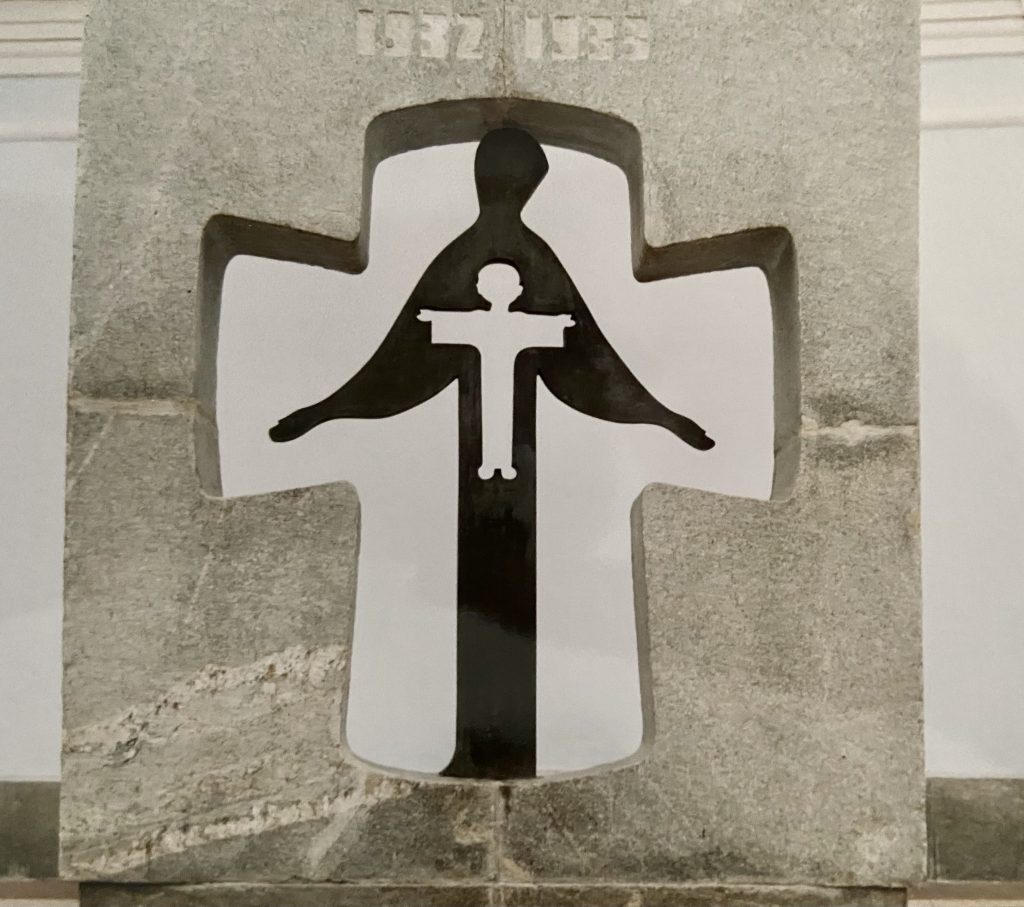Joan Neuberger, a professor of history at The University of Texas at Austin, studies modern Russian culture in social and political context, with a focus on the politics of the arts. Her most recent book, This Thing of Darkness: Eisenstein’s Ivan the Terrible in Stalin’s Russia (Cornell: 2019), won the American Historical Association’s George L. Mosse Book Prize. She teaches courses on modern Russia, the Russian empire, film, visual culture, and public and digital history. Neuberger is current President of the National Association of Slavic, East European, and Eurasian Studies (ASEEES) Board of Directors.
What are the most important historical, political, and humanitarian factors of the war for the public to understand?
The most critical thing to understand is that this is really a war, not a “special military operation” as the Russian government demands it be called. Russia is justifying its invasion of an independent sovereign country on its border with a set of lies: that Ukraine has never had an independent existence, culture, or ethnicity; that it is part of Russia; that Russians and Ukrainians are “brothers”; and that Russian speakers in Ukraine called on Russia to save them from Ukrainian Nazis and fascists.
Russia expected the war to be over quickly, which did not happen. It’s not clear if Putin is now following a plan, or if when they didn’t win the war right away, they chose just to destroy as much of the Ukraine as they could. If this is a plan, it is an irrational one. If they are “brothers,” why are they targeting civilians and their homes and hospitals and schools? What kind of country does Russia want in Ukraine after this? The war is creating an international political disaster that is a catastrophe for Russians, the Russian economy, and the Russian government. It’s not clear why Putin is making these decisions, and we won’t know for a while. What we do know is that the destruction of Ukrainian cities and towns is extensive, and is creating a humanitarian disaster for Ukraine and Ukrainians. More than two million people are seeking refuge in countries neighboring Ukraine. We also know that the targeting of civilians in Ukraine is a war crime (according to UN definitions).
It is not clear, and impossible to tell, how many Russians actually support the war. The Russian media is almost completely controlled by the government. Since the start of the war, all free, independent media have been shut down (Novaya Gazeta, the last independent media organization that remained, just shut down). As in the U.S., in Russia, television is the most common source of news. There has been a buildup on Russian TV news of a nationalist fantasy that Ukraine is just a part of Russia—a denial of its sovereignty and its efforts to move away from its Soviet past towards becoming a more democratic country. During the war there has been a blackout on news showing the bombing of major cities and the attacks on ordinary people. Polls that say that the majority of Russians support the “special military operation”—no one is allowed to call it a war in public—but that may, in fact, mean that Russians support a war that isn’t the one that’s really happening.
I have gotten reports from Russian and Ukrainian friends that there are many people in Russia who don’t even believe that Ukraine is being bombed. Disinformation of this kind is amplifying the rift between ordinary Ukrainians and Russians. The extensive contact and cooperation between Russians and Ukrainians that existed before 2014, when Putin seized Crimea, is no longer possible. While this vicious, criminal, irrational war is obviously most tragic for Ukrainians whose lives are being destroyed for no reason, it is tragic for everyone in the region and everyone who cares about this region.

How is your scholarly work impacted by the current crisis, in the here-and-now, and as you look at your research and teaching in the long-term? And how do current events affect the field of scholarship moving forward?
Since the mid-90s, when historians turned to studying Russia as an empire and a multi-national state, I have been working to decolonize my syllabus. My colleagues and I have been seeking to decenter Russia in our scholarship, while still recognizing that Russia is the hegemonic power in this region. For example, in connection with the Black Lives Matter movement, I’ve tried to introduce topics that will be of more interest to students of color. There was, for example, a movement of African Americans to the Soviet Union early in the twentieth century in the hopes that it would be less racist and more open to them than the U.S. and Western Europe, and in some ways it was. Also, slavery was abolished in the U.S. at the same time serfdom was abolished in the Russia empire, with some interesting parallels. Additionally, Indigeneity is an extremely complex topic in the whole region of Eurasia, and it holds parallels not just to the destruction of Indigenous populations in the U.S. and the stealing of land, but also to concepts of Indigeneity and what “native-ness” means, and the way that successive empires have dealt with it.
The Russian war against Ukraine, however, has made it clear that I have not been doing enough of that decentering. As the primary power in this area, we do need to study Russia, but we also need to be much more attentive to all the regions that have their own histories and cultures not just as colonies of Russia. That’s something the Association for Slavic, East European, and Eurasian Studies has been doing, especially since the invasion. We are also working harder to include and promote the cultures, histories, and politics of all the people of northern Eurasia. As we become more global about how we teach, there are many possibilities for interregional studies.

What can the at-large alumni community do to assist those most in need, from small acts to large?
Money is desperately needed in Ukraine. People can give to organizations that support aid, particularly for medical supplies. The Kyiv School of Economics is accepting donations for medical supplies here. The World Central Kitchen is providing meals directly to refugees on the borders of Ukraine. You can also give to UT to support displaced scholars. There are more than 2 million Ukrainian refugees as well as Russians and Belarussians who are now in need of jobs. We need to create post-doc positions, hire people as lecturers, and offer emergency admissions to grad and undergrad students. A faculty member at Dartmouth created the International Task Force for Displaced Scholars that scores of universities and faculty have joined to create positions for displaced scholars. Texas Global is in touch with Scholars at Risk, and the Scholar Rescue Fund, the two main organizations that match displaced scholars with universities. The Department of Slavic and Eurasian Studies/Center for Russian, East European, and Eurasian Studies is soliciting donations to support displaced scholars and fund positions and place graduate students and post-docs in any field or department at the university.
Another critical thing you can do is read!
Links to news sources:
Novaya Gazeta (now no longer publishing new material)
Meduza, reporting in English from Russia.
Kiev Independent on Twitter
All are publishing short dispatches from places in Ukraine
Links to aid organizations:
Razom Emergency Aid for Ukraine

